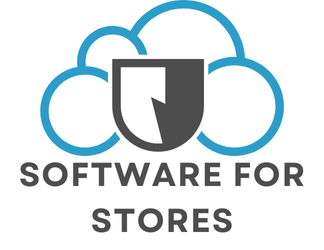UK tech startups are transforming how businesses harness data. By leveraging AI-powered predictive analytics, these companies gain deeper insights into market trends and customer behavior. This innovative approach not only drives strategic decision-making but also fuels growth and competitiveness. Explore how AI shapes the predictive landscape for UK tech startups, revealing opportunities that once seemed out of reach. Unlock new perspectives on harnessing AI's potential and discover the strategies that industry leaders are using to stay ahead.
Overview of Predictive Analytics in UK Tech Startups
Predictive analytics is a transformative tool in the realm of UK tech startups, empowering companies to forecast future trends and make informed decisions. It involves the use of statistical algorithms and machine learning techniques to identify the likelihood of future outcomes based on historical data. This capability is crucial for startups aiming to stay competitive and innovative in a rapidly evolving market.
The current landscape of tech startups in the UK is vibrant, with many companies leveraging predictive analytics to gain a strategic edge. Startups in sectors such as fintech, healthtech, and edtech are particularly active in adopting these technologies. By using predictive models, these startups can anticipate customer needs, optimize operations, and improve product offerings.
AI applications play a pivotal role in enhancing predictive analytics, providing the computational power and advanced algorithms necessary for processing large datasets. AI-driven predictive analytics allows startups to refine their models continuously, ensuring more accurate and reliable predictions. This integration of AI not only improves the precision of forecasts but also enables startups to automate decision-making processes, thereby increasing efficiency and reducing human error.
Additional reading : Unlocking the Power of AI: Enhancing Public Health Data Management in the UK
In summary, predictive analytics, bolstered by AI applications, is reshaping how UK tech startups operate, offering them tools to predict market trends and customer behaviours effectively.
AI Methodologies in Predictive Analytics
In the realm of predictive analytics, AI methodologies are indispensable for UK tech startups. These methodologies encompass a variety of techniques, including machine learning and data mining, which are pivotal in extracting insights from large datasets.
Machine learning, a subset of AI, involves training algorithms to recognise patterns and make predictions without explicit programming. This technique is often compared to traditional statistical methods, which rely on predefined models and assumptions. While traditional methods are valuable for simpler datasets, machine learning excels in handling complex and high-dimensional data, providing more nuanced insights.
Data mining is another crucial AI methodology. It involves exploring large datasets to discover patterns and relationships that might not be immediately apparent. This process is essential for identifying trends and anomalies, which can significantly enhance predictive models.
The success of these AI methodologies heavily depends on the quality of data and preprocessing. High-quality data ensures that the models are trained on accurate and relevant information, leading to more reliable predictions. Preprocessing, which includes data cleaning and transformation, is vital to prepare the data for analysis. Without these steps, even the most advanced AI techniques may yield suboptimal results.
In summary, AI methodologies like machine learning and data mining are transforming predictive analytics, offering startups powerful tools for data-driven decision-making.
Case Studies of UK Tech Startups
Exploring real-world applications of predictive analytics in UK startups provides valuable insights into their transformative potential.
Startup A: Utilizing AI for Customer Insights
One standout example is a fintech startup leveraging AI to gain deeper customer insights. By analysing transaction data, the startup identifies spending patterns, enabling personalised financial advice. This approach not only enhances customer satisfaction but also increases retention rates. The use of AI in this context highlights its ability to process vast amounts of data and generate actionable insights, offering a competitive advantage in the fintech sector.
Startup B: Predictive Maintenance in IoT
In the realm of IoT, a UK-based startup is employing predictive analytics for maintenance. By monitoring equipment data, the startup predicts failures before they occur, reducing downtime and maintenance costs. This proactive approach showcases the potential of predictive analytics to optimise operations and increase efficiency in the IoT industry.
Startup C: Enhancing Marketing Strategies with AI
Another tech startup enhances marketing strategies using AI. By analysing consumer behaviour, the startup tailors marketing campaigns to target specific audiences effectively. This strategy not only boosts conversion rates but also maximises marketing ROI. The success of this AI application underscores its scalability and impact across various industries.
Statistics and Trends in AI-Powered Predictive Analytics
In the dynamic landscape of AI adoption, industry statistics highlight a significant uptick in the use of AI-powered predictive analytics among UK tech startups. A recent survey indicates that over 70% of these startups are integrating AI into their business models, reflecting a robust trend towards data-driven decision-making. This surge is driven by the need to enhance operational efficiency and improve customer experiences.
Key market trends shaping the future of predictive analytics include the increasing sophistication of AI algorithms and the growing accessibility of big data technologies. Startups are leveraging these advancements to refine predictive models, enabling more precise forecasting and strategic planning.
Insights from industry reports suggest that sectors such as fintech and healthtech are at the forefront of this transformation. These industries are rapidly adopting AI to harness the potential of predictive analytics, aiming to deliver personalised services and optimise resource allocation.
Moreover, the trend towards AI adoption is expected to continue, with projections indicating a compound annual growth rate (CAGR) of over 25% in the AI analytics market. As startups increasingly recognise the value of AI in predictive analytics, they are poised to redefine industry standards and drive innovation across various sectors.
Expert Opinions on AI in Predictive Analytics
In the rapidly evolving field of predictive analytics, insights from industry experts and thought leaders provide invaluable perspectives on the current and future landscape. Interviews with these AI and analytics experts reveal a consensus on the transformative potential of AI technologies. They highlight how AI can significantly enhance predictive analytics by improving accuracy and efficiency in data processing.
Perspectives from Thought Leaders
Thought leaders in the industry emphasize the dual nature of challenges and opportunities presented by AI. While the integration of AI offers unprecedented opportunities for innovation and efficiency, it also poses challenges in terms of data privacy and ethical considerations. Experts suggest that navigating these challenges requires a balanced approach, where technological advancements are aligned with ethical standards.
Future of AI in Predictive Analytics
Looking ahead, experts predict a future where AI-driven predictive analytics becomes even more sophisticated. They foresee advancements in AI algorithms that will allow for more granular and precise predictions, potentially revolutionizing sectors like finance, healthcare, and marketing. Industry analysis indicates that the continuous evolution of AI will expand its applicability, making it an indispensable tool for decision-making across various industries.
Challenges Faced by Tech Startups in Implementing AI
Implementing AI in predictive analytics presents several challenges for UK tech startups. One of the primary implementation challenges is the complexity of integrating AI systems into existing infrastructures. Many startups struggle with aligning new technologies with their current processes, which can be resource-intensive and time-consuming.
Data privacy is another significant concern. Startups must navigate stringent regulations to ensure compliance while maintaining customer trust. This involves implementing robust data protection measures and ethical guidelines to handle sensitive information responsibly. Addressing these concerns is crucial for startups to leverage AI effectively without compromising on privacy.
Resource constraints further complicate AI adoption. Startups often face limitations in terms of funding and skilled personnel. The demand for AI expertise exceeds supply, creating a skill gap that can hinder progress. Startups must strategically allocate resources, balancing investment in technology with the need for skilled professionals to drive AI initiatives.
In summary, the path to AI implementation in predictive analytics is fraught with challenges. Startups must tackle these hurdles by developing comprehensive strategies that address data privacy, resource allocation, and the integration of AI technologies, ultimately paving the way for successful adoption and innovation.
Strategic Implications for Entrepreneurs and Investors
In the dynamic landscape of AI-powered predictive analytics, understanding the strategic insights is crucial for both entrepreneurs and investors. For entrepreneurs, integrating AI into business models is not just an option but a necessity. The strategic consideration involves evaluating how AI can enhance operational efficiency and customer engagement. Entrepreneurs must assess the scalability of AI solutions and their alignment with business objectives.
From an investment perspective, the rise of AI-powered predictive analytics presents lucrative investment opportunities. Investors should focus on startups that demonstrate a clear roadmap for AI integration and a robust data strategy. The potential for high returns is significant in sectors like fintech and healthtech, where predictive analytics can drive innovation and growth.
Entrepreneurial guidance is essential for those looking to leverage AI effectively. Entrepreneurs should prioritize building a skilled team capable of navigating the complexities of AI technologies. Additionally, understanding market trends and regulatory landscapes can provide a competitive edge. By focusing on these strategic insights, entrepreneurs can position themselves to capitalize on the transformative power of AI, while investors can identify promising ventures poised for success.
Future Trends in AI and Predictive Analytics
The convergence of emerging technologies is shaping the future of predictive analytics. As AI innovations advance, they are setting the stage for more sophisticated predictive modeling. Among the most promising developments are quantum computing and edge AI, which are expected to revolutionise the way data is processed and analysed.
Quantum computing holds the potential to process complex datasets at unprecedented speeds, enhancing the accuracy and efficiency of predictive models. This technology could enable startups to solve problems previously thought unsolvable, opening new avenues for innovation.
Edge AI is another transformative trend, allowing data processing to occur closer to the source. This reduces latency and enhances real-time decision-making, crucial for industries like autonomous vehicles and healthcare, where timely insights are paramount.
Predictions for the evolution of AI in tech startups suggest a shift towards more personalised and adaptive models. These innovations are likely to impact a wide range of sectors, from finance to agriculture, by providing tailored solutions that address specific industry challenges.
As AI and predictive analytics continue to evolve, their integration into various industries promises to drive efficiency, innovation, and competitive advantage, reshaping the business landscape.











